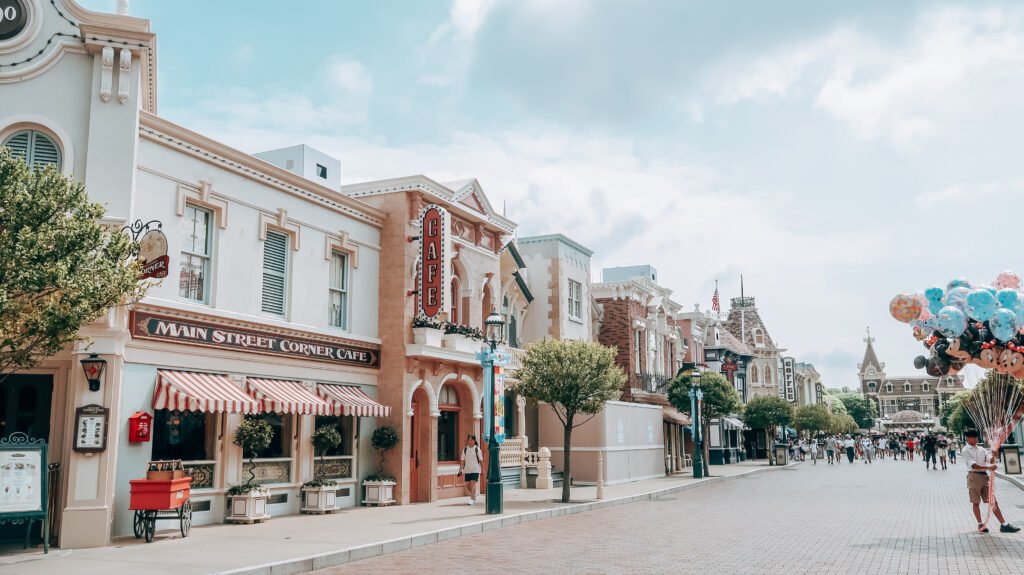Understanding the Role of US Customs and Border Protection
The US Customs and Border Protection (CBP) plays a critical role in regulating the entry of visitors into the United States. Established under the Department of Homeland Security, CBP is responsible for safeguarding the nation’s borders and ensuring that individuals entering the country comply with all relevant immigration laws. Border agents operate at various points of entry, including airports, seaports, and land borders, where they conduct inspections to verify the identity and eligibility of incoming travelers.
When arriving in the US, tourists holding visas should expect to encounter CBP officers who will ask a series of questions to assess the purpose of their visit and confirm that they meet the requirements of their tourist visa. Common inquiries may include the length of stay, the places to be visited, and the financial means to support oneself while in the country. It is essential for tourists to familiarize themselves with the regulations that govern their visas. Non-compliance with these regulations can lead to significant repercussions, including denial of entry, deportation, or future travel restrictions. Visitors should ensure they have all necessary documentation, including valid passports and relevant visa papers, readily available for inspection.
In summary, a solid understanding of the role of CBP and the customs process is paramount for tourists. Knowledge of the responsibilities held by border agents and the importance of adhering to visa regulations not only helps in easing anxiety but also fosters compliance with US immigration policies.
Common Immigration Questions for Tourist Visa Holders
Tourist visa holders entering the United States can expect to face a series of common questions from customs officials. Understanding these inquiries can help ensure a smoother entry process. One of the most frequent questions pertains to the purpose of the visit. Immigration officers typically ask visitors to explain why they are traveling to the U.S., which might include participating in tourism, visiting family, attending events, or conducting business. A clear and honest response to this inquiry is crucial, as it reflects the intent behind their travel.
Another typical question relates to the duration of the intended stay. Visitors are often asked how long they plan to remain in the country. It’s essential for tourists to have a precise itinerary and know their departure date to provide a consistent answer. This information reassures customs officials of the traveler’s intention to adhere to the terms of their visa. Notably, overstaying a visa can lead to significant consequences; therefore, clarity around one’s travel plans is vital.
Furthermore, customs officials may inquire about accommodations during the visit. Tourists should be prepared to provide details about where they will be staying, be it a hotel, a vacation rental, or with friends or family. Having the reservation information at hand can significantly ease the questioning process. In addition, travelers should be aware of the requirement to demonstrate adequate financial means to support themselves during their stay, which might prompt further inquiries regarding funding sources.
Ultimately, maintaining transparency and a calm demeanor while engaging in these conversations is crucial. Successfully navigating these common immigration questions contributes to a positive experience at U.S. Customs and Border Protection, paving the way for an enjoyable visit to the country.
Helpful Tips for a Smooth Customs Experience
Navigating customs at US borders can be daunting for tourist visa holders, but preparation and awareness can significantly improve the experience. First and foremost, ensure that you have all necessary documentation ready at hand before arriving at the customs checkpoint. This includes your passport, visa, and any additional paperwork that may be required, such as proof of accommodation or return travel. Having these documents organized will not only facilitate a quicker process but also demonstrate to customs officials that you are a well-prepared traveler.
Communication plays a critical role in how smoothly your customs experience unfolds. When interacting with customs officials, maintain a respectful and clear demeanor. Use simple, straightforward language when answering questions, and be honest in your responses.
In cases of unexpected circumstances, such as being selected for additional questioning, remain calm and cooperative. Remember that customs officials are adhering to protocols meant to ensure national security and safety. Maintaining a positive attitude during such encounters can make a significant difference, as it reflects an understanding of their duties and helps in establishing rapport.
Navigating Challenges and Resolving Issues at Customs
Tourist visa holders might encounter several challenges when crossing into the United States, especially at customs and border protection (CBP). One of the most significant concerns is the possibility of being denied entry. This can happen for various reasons, including discrepancies in documentation, travel history, or even miscommunication during the interview process. Additionally, delays may occur while awaiting secondary inspections, which can create anxiety and uncertainty.
To effectively navigate these challenges, it is crucial for travelers to understand their rights and the procedures in place. When faced with potential denial of entry or delays, it is recommended to remain calm and respectful. Engaging with the customs officer in a polite manner can go a long way in such tense situations. If a tourist feels that they are being treated unfairly or needs clarification about their status, it is appropriate to ask to speak with a supervisor or a senior officer.
Knowing whom to approach for assistance can also alleviate stress. The CBP has established protocols to assist individuals experiencing issues. Should legal complexities arise or if the situation escalates, seeking guidance from an immigration attorney can be vital. Legal help can provide clarity on one’s rights, assist in proper documentation, and ensure that the tourist is adequately represented during procedures.
Moreover, to empower visitors, it is wise to familiarize oneself with the policies governing entry and exit from the United States. This includes understanding what is permissible to bring into the country and being aware of any restrictions that may apply. Preparation and informed awareness can make the customs process smoother and help tourists advocate for themselves effectively while navigating potential challenges.



